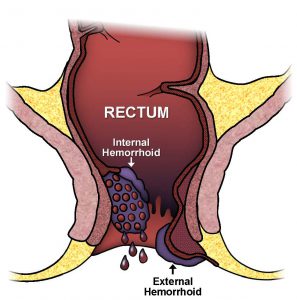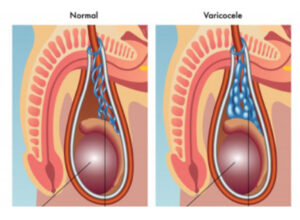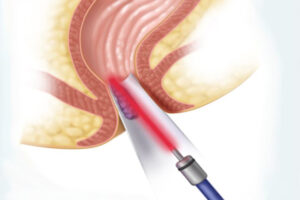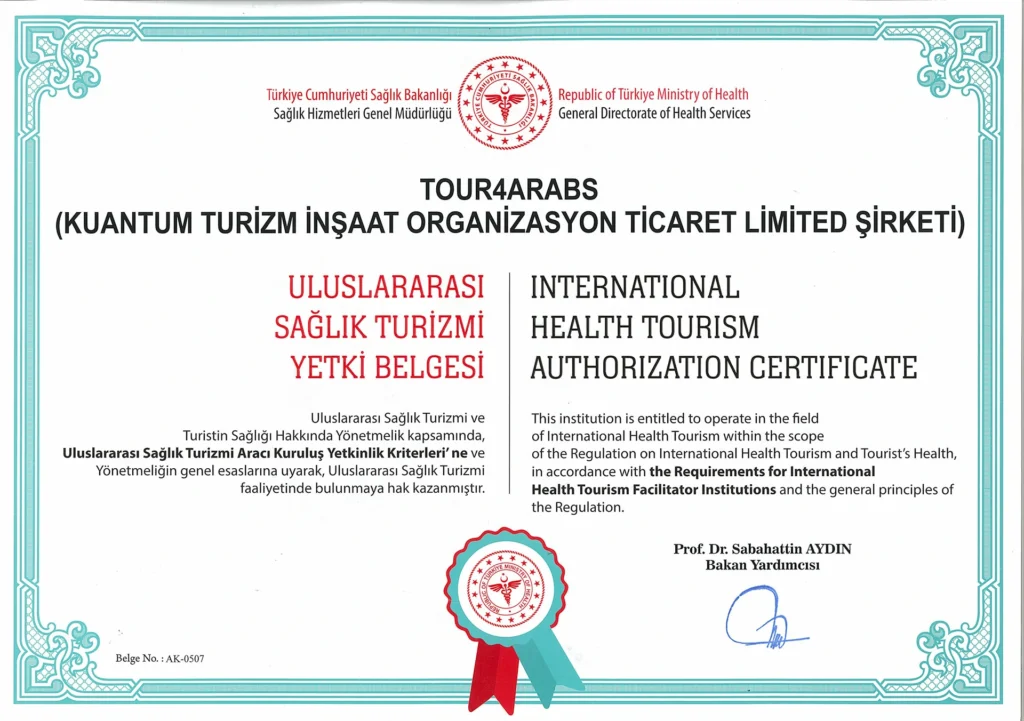What Is Hemorrhoids ?
The last part of the large intestine, called the anus, or the breech region of the swelling or growth of the veins is called hemorrhoids. The veins in the Anal canal droop and sometimes become trapped and bleed. As time goes on, these balls can move out of the breech.
This disease is divided into internal and external. Internal hemorrhoids usually pass painlessly while external hemorrhoids can pass quite painful. Sometimes a clot sits in the enlarged vessels, resulting in severe pain, swelling and redness. Internal hemorrhoids are evaluated according to four different stages.
Stages of hemorrhoids;
1. Stage: hemorrhoid hemorrhage manifests itself with. Small hemorrhages, toilet paper dirty or sometimes in the form of drops. At this stage, hemorrhoids do not sag. However, it is seen with rectoscopy.
2. Stage: hemorrhoids dangle out with defecation and then go back spontaneously.
3. Stage: hemorrhoid breasts are now out of the anus. They can only be pushed back to the anus by pushing the finger. Edema occurs very often and they cause pain.
4. Stage: The stage in which hemorrhoids dangle out of the anus. Breasts are usually large and wet. Among the complaints are the contamination of the underwear due to the inability to clean fully after a large ablution and pain may occur while sitting.
What Are The Symptoms Of Hemorrhoids?
Common symptoms;
- Pain or burning sensation during defecation
- Rectal bleeding (fresh red bleeding from the anus))
- A feeling of swelling, discharge or wetness in the breech
- Itch
- Irregularity in defecation
What Is The Treatment?
Treatment primarily aims at regulating bowel movements. If you have problems such as constipation or diarrhea that occur constantly, the causes that cause this should be found and resolved first.
Hemorrhoid cream or medication should not be used without a definitive diagnosis of hemorrhoids by a specialist.It is mostly L. and 2nd Stage IIIA treatment, drug and cream treatment. The cream is often used to prevent pain, swelling, and burning. In addition, the cream containing a small amount of nitroglycerin to massage the problem area can reduce pain and burning.
These creams can relax and relax the rectal muscles. However, the creams used are creams with a heavy effect.
Treatment for hemorrhoids is to sit in a bathtub with warm water for about 15 to 20 minutes after defecation. In this method called sitting bath, disinfectant can be used and provides relaxation.
Another treatment method is sclerotherapy. In this method, which is also used as an injection or injection treatment, some substances are injected into the problematic area. This method tries to eliminate sagging. The method applied without narcosis is painless and short-term.
This is a treatment that can be used to treat the disease. In this method, a rubber is placed around the hemorrhoid breast and the breast is left to rot. These are open and non-surgical treatment methods.
The Most Effective Treatment Method: Hemorrhoid Surgery
Hemorrhoid treatment, depending on the development of the disease can be done with conventional surgery, that is, surgery. 3. , 4. hemorrhoid surgery, which is more preferred in stage hemorrhoids, is performed under general anesthesia or by performing regional anesthesia with special devices.
If the third region is for the treatment of hemorrhoids, laser treatment can also be applied. In this method, the duration of the surgery is very short and painless after the surgery. It is the most effective treatment method for the disease and is less likely to repeat the disease after surgery.
How Does It Pass And What Are The Factors That Trigger The Disease?
A diet consisting primarily of pulp food is recommended. However, it is very important that this diet be done in conjunction with other practices to be done under the control of a doctor. The main reason is sometimes mistakes in defecation.
Our body’s excretory system has a natural order. If you delay or suppress the natural urge to defecate in the morning, you will trigger the disease if you force yourself to defecate outside of your natural routine at another time.
Also developing continuous constipation or digestive problems such as diarrhea can also lead to this disease. Drinking plenty of water is generally recommended for a healthy life. It is essential not to catch hemorrhoids and to drink plenty of water for regular bowel movements.
You need to pay attention to the food you eat because it increases the likelihood of a problem such as constipation in your digestive system. It is important to take enough fiber from foods as it is for many other diseases.
A life of irregular physical activity can also be the cause of the disease. In other words, too much physical activity or no physical activity at all, sitting for a long time can cause this disease. For this reason, regular sports are necessary in the treatment of every disease and in the maintenance of a healthy life.
It is important that you continue to do a sport that suits you, or at least incorporate regular walking into your life, and has a significant effect on the treatment of many diseases.
On the other hand, women can get this disease during pregnancy and after birth. People in professions such as driving and piloting should be especially careful about their gut health. Exercise should not be neglected and fiber and pulp foods should be included in the diet. Drinking alcohol can also cause hemorrhoids.
Hemorrhoids Can Be A Precursor To Different Diseases!
Another important issue for hemorrhoids is whether there is an underlying tumor or not. Hemorrhoids can be a harbinger of colon cancer. Therefore, if you have symptoms such as blood coming from your anus and you have severe pain, you should go to a hospital.
You should not use any cream or medication other than your doctor’s advice. The disease can only be diagnosed by rectoscopic or colonoscopic examination. You should not delay seeing a doctor, especially if it is a symptom of a more serious disease such as a tumor.
For hemorrhoids, which are very difficult to live and sometimes cause difficulty even sitting, you should take care of your life, take care of a healthy diet and a physically active life. This disease can even prevent you from walking over time.
Although it may be possible if the surgery progresses and reaches more serious dimensions, the problems you will experience after the surgery can give you very difficult moments.
For this reason, when the disease starts to show its first symptoms, you should immediately consult a doctor and have the necessary tests done without pain for a long time.
For these examinations, it is necessary to apply to a fully equipped hospital and consult the general surgery department.
Frequently Asked Questions
1.What is internal and external hemorrhoids, what are the differences between the two?
The hemorrhoid tissue on the inner side of the Anus (breech) is called the inner, while those on the outer edge of the anus are called external hemorrhoids. They are basically the same tissue except that they are in two different places.
2. Hemorrhoids used to be more common in older people. But now it is also seen in young people. Do changing living conditions trigger the emergence of this disease?
Eating habits change in our society, more ready and fast food consumption, more desk work done, less Sports done and weight gain both before the emergence of the disease attracts, as well as increases.
3. What age is it seen more?
The disease can be seen at almost any age, but it occurs more often after the age of Forties.
4. A common problem?
About half of the adult population of our society experiences hemorrhoid-related discomfort at some point in its life.
5.Is hemorrhoids seen in people who consume bitter and spicy food?
Excessive use of spices affects the hemorrhoid tissue as it affects the stool and can trigger complaints.
6. Who is at risk?
People with persistent constipation, people who push and toilet for a long time, and people who are overweight have the biggest reservations.
7. Does hemorrhoids have a genetic effect?
In some families, varicose veins and hemorrhoid disease can be seen more often because of the inherited characteristic of the vascular wall.
8. Can hemorrhoids be confused with another disease?
Symptoms of hemorrhoid disease may be mixed with colon cancer, inflammatory diseases of the large intestine (colitis) and some other diseases of the breech region.
9. What are the symptoms of hemorrhoids?
The most common complaints are pain, bleeding, sagging, itching and swelling of the breasts.
10. Why do you need to consult a specialist for hemorrhoids?
When these symptoms increase or become permanent, if the person’s quality of life deteriorates, a general surgery specialist should be consulted.
11. Is it more common in women or men?
Both sexes are seen in equal proportion.
12. Can we diagnose it ourselves?
If the hemorrhoid breast is outside and swollen, it is sufficient for diagnosis. However, it cannot be confirmed that complaints (especially bleeding) are caused only by hemorrhoids without being examined by a general surgery specialist.
13. How is it diagnosed?
The diagnosis of hemorrhoids is made by a general surgeon’s examination and endoscopic examination (sigmoidoscopy or colonoscopy). “Endoscopic examination” is the name given to the examination of the internal hemorrhoid tissue and the entire intestine if necessary without hurting the patient with a thin, curlable device with light at the tip.
14. How long will it take to be diagnosed?
The examination is a very simple and short procedure. It takes a few minutes at most. Endoscopic examination after the necessary bowel cleaning is between 5 and 20 minutes depending on the examination of the whole or part of the intestine.







